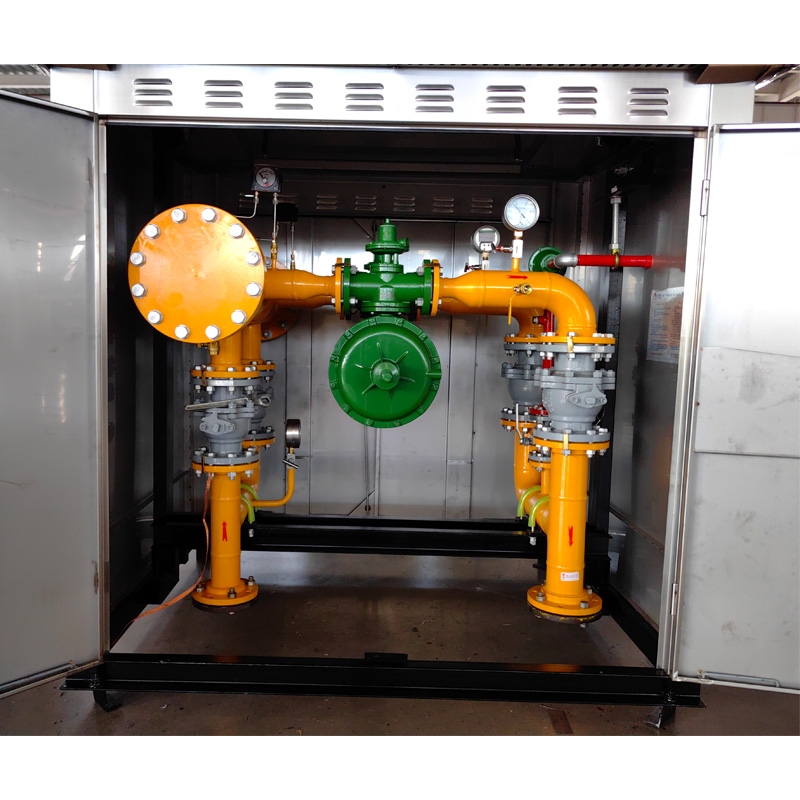
Nov . 22, 2024 12:01
Back to list
وعاء ضغط الغاز
Understanding Gas Pressure Vessels A Comprehensive Overview
Gas pressure vessels are integral components in various industrial applications, from chemical processing to energy production. These specialized containers are designed to hold gases at pressures significantly higher than atmospheric pressure. Understanding their structure, purpose, safety measures, and applications can provide insights into their critical role in modern technology and industry.
What is a Gas Pressure Vessel?
A gas pressure vessel is a container that stores gas under high pressure. These vessels are engineered to withstand the stress and strain caused by the gases they contain, ensuring safety and efficiency. The materials used in their construction are typically robust metals or composites that can resist corrosion and high temperatures, which are essential attributes considering the harsh environments in which these vessels often operate.
Design and Construction
The design of a gas pressure vessel is influenced by various factors, including the type of gas it will hold, the operating pressure and temperature, and relevant safety standards. Engineers utilize advanced materials and design techniques to optimize the vessel's strength and integrity. The shape of the vessel, often cylindrical or spherical, aids in evenly distributing stress across the structure.
.
Safety Measures
وعاء ضغط الغاز

Given the potential risks associated with high-pressure gas systems, safety is paramount in the design and operation of gas pressure vessels. Regular inspections and maintenance are critical to identify potential weaknesses, such as corrosion or fatigue. Safety valves are often installed to relieve pressure in case of an overpressure situation, preventing catastrophic failures.
Moreover, the vessels are typically equipped with monitoring systems that track pressure and temperature, allowing for real-time analysis of operating conditions. Training personnel on proper handling and emergency procedures is also essential to minimize risks associated with gas pressure vessels.
Applications
Gas pressure vessels have a plethora of applications across various industries. They are widely used in the oil and gas sector for storing natural gas and other hydrocarbons. In the chemical industry, they are essential for storing reactants under pressure, which can enhance reaction rates and yield.
Additionally, gas pressure vessels play a crucial role in the energy sector, particularly in the storage of compressed natural gas (CNG) and as part of various gas separation processes. They are also used in the transportation of gases in pipelines, enabling the safe movement of gases over long distances.
Conclusion
In summary, gas pressure vessels are vital components in numerous industries, serving as containers for safely storing gases under high pressure. Their design, construction, and safety measures are critical to preventing accidents and ensuring operational efficiency. As industries continue to evolve, the importance of these vessels will only grow, underscoring the need for ongoing advancements in technology and safety practices. Understanding the intricacies of gas pressure vessels not only highlights their significance but also emphasizes the critical role they play in driving modern industrial processes.
Next:
Latest news
-
Safety Valve Spring-Loaded Design Overpressure ProtectionNewsJul.25,2025
-
Precision Voltage Regulator AC5 Accuracy Grade PerformanceNewsJul.25,2025
-
Natural Gas Pressure Regulating Skid Industrial Pipeline ApplicationsNewsJul.25,2025
-
Natural Gas Filter Stainless Steel Mesh Element DesignNewsJul.25,2025
-
Gas Pressure Regulator Valve Direct-Acting Spring-Loaded DesignNewsJul.25,2025
-
Decompression Equipment Multi-Stage Heat Exchange System DesignNewsJul.25,2025

